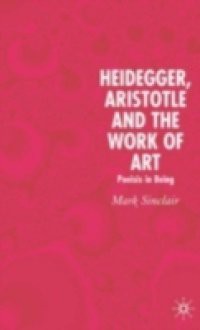Despite the recognition that Heidegger's interpretation of Aristotle is fundamental to the project of Being and Time, the historical significance of this interpretation has still remained opaque. In fact, this interpretation concerns not merely what one thinker happens to find in another but rather the fate of metaphysics itself. In advancing this argument Part I of this book shows how Being and Time is to be understood, as Heidegger will seek to underline, to draw the inception of metaphysics in the work of Aristotle back to its own presuppositions. Part II of the book shows how this interpretative appropriation of Aristotle is transformed by Heidegger's subsequent reflection on the essence of art. The book thus shows how Heidegger's philosophical concern for the poetic in being is pivotal in the turning from the task of laying bare the presuppositions of metaphysics to that of an essential delimitation or 'overcoming' of metaphysics itself.

